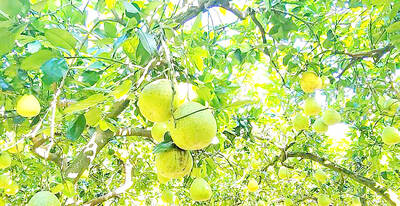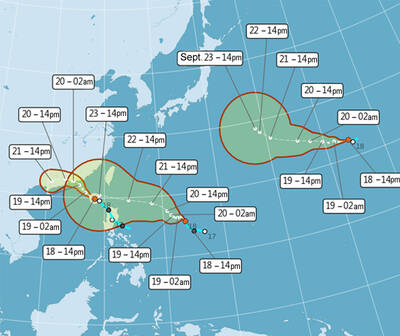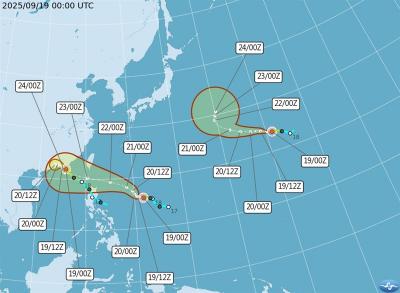Of the 23 candidates running in the legislative election who are members of political families, three come from families that have been active in Taiwanese politics for three generations or more — Tsai Yi-yu (蔡易餘) and Chiu Yi-ying (邱議瑩) representing the Democratic Progressive Party (DPP) and Hsieh Kuo-liang (謝國樑) of the Chinese Nationalist Party (KMT).
Tsai is the DPP nominee for the first electoral district in Chiayi County and a fourth--generation member of a political family. The family’s involvement in local politics started when Tsai’s great-grandfather, Tsai Jen (蔡仁), established the Da Fang (大房) faction in Budai Township (布袋).
As a result, Tsai Yi-yu’s grandfather, Tsai Chang-ming (蔡長銘), served as a three-term county councilor and also became an important member of the Huang faction, an key political grouping in Chiayi County founded by the then-Chiayi County commissioner Huang Lao-da (黃老達).
Tsai Yi-yu’s father, Tsai Chi-fang (蔡啟芳), was arrested during the “Yi-ching Program,” an anti-gangster program launched during the Martial Law era (1949-1987) that allowed the government to imprison people it believed to be gangsters without a trial.
Tsai Chi-fang joined the then-recently formed DPP soon after his release. With the support of the Da Fang faction in Budai and the Lin faction — another local political group established by Lin Chin-sheng (林金生), father of Cloud Gate Dance Theatre founder Lin Hwai-min (林懷民) — he ran for the position of Chiayi County commissioner against the Huang faction candidate Tsai Tien-ching (蔡天井).
Tsai Chi-fang was later elected to the National Assembly and then as a legislator. However, he was defeated in the 2008 legislative election by the KMT’s Wong Chung-chun (翁重鈞).
Tsai Yi-yu’s involvement in politics started with his job as a lawyer for Yunlin County Commissioner Su Chih-fen (蘇治芬) of the DPP. He then ran in the party’s primaries for Taipei City council, but lost despite receiving a high number of votes. Tsai Yi-yu is running against his father’s adversary, Wong, in the legislative elections on Jan. 14.
DPP lawmaker Chiu is the third generation in his family to play a role in politics. Chiu’s grandfather, Chiu Ching-te (邱慶德), served as chairman of the Pingtung County Assembly and also served two terms as Pingtung City mayor in the 1960s.
Chiu Yi-ying’s father, Chiu Mao-nan (邱茂男), became a Pingtung County councilor at the age of 25, and had planned to run for the position of Pingtung mayor in 1977, but then fell out with and left the KMT.
Chiu Mao-nan was later imprisoned for his involvement in the Kaohsiung Incident in 1979, a pro-democracy protest that escalated into a mass movement. After his release he served two consecutive terms in the Taiwan Provincial Assembly.
Chiu Yi-ying became the youngest representative in the National Assembly at the age of 25, and went on to serve as a legislator and Hakka Affairs deputy chairwoman.
Now married to Greater Kao-hsiung Deputy Mayor Lee Yung-te (李永得), Chiu Yi-ying is running in the Jan. 14 legislative elections in Greater Kaohsiung.
“The intangible assets left [to me] by my elders are a very positive force,” Chiu Yi-ying said, adding “however the most important thing is the hard work and effort of the individual.”
KMT Legislator Hsieh, seeking re-election, also represents the third generation of a Taiwanese political family.
Hsieh’s grandfather, Hsieh -Ching-yun (謝清雲), ran for the position of Keelung City councilor in 1952, where he served for three consecutive terms, and then for the Taiwan Provincial Assembly, where he won two terms in a row
Hsieh Kuo-liang’s father, Hseih Hsiu-ping (謝修平), started off his political career as a provincial assemblyman, then ran for the Keelung City council, which he went on to lead.
The Hsieh family also owns the Keelung Second Credit Cooperative and Er Xin High School in Keelung, demonstrating its deep roots in the area.
Hsieh Kuo-liang has been a People First Party (PFP) legislator for the area since 2004.
However, Hsieh Kuo-liang says that his decision to become involved in politics was personal and unconnected to his family, which has not been politically active for more than two decades.
“My father was a little unfamiliar with everything when I was fighting for the PFP nomination [in 2004] for the legislator seat,” said Hsieh Kuo-liang, who is now a member of the KMT.
Translated by Jake Chung, Staff Writer

NEW AGREEMENT: Malaysia approved imports last year after nearly two years of negotiations and inspections to meet quarantine requirements, officials said Up to 3.6 tonnes of pomeloes from Taiwan cleared Malaysian customs on Friday, in the first shipment of Taiwanese pomeloes to Malaysia. Taiwan-grown pomeloes are popular in domestic and overseas markets for their tender and juicy taste, the Ministry of Agriculture’s Animal and Plant Health Inspection Agency said. The fruit is already exported to Japan, Canada, Hong Kong, Singapore and the Philippines, it added. The agency began applying for access to the Malaysian market in 2023, compiling data on climate suitability, pests and diseases, and post-harvest handling, while also engaging in nearly two years of negotiations with Malaysian authorities and submitting supplementary

PEAK MONTHS: Data showed that on average 25 to 27 typhoons formed in the Pacific and South China seas annually, with about four forming per month in July and October One of three tropical depressions in the Pacific strengthened into a typhoon yesterday afternoon, while two others are expected to become typhoons by today, Central Weather Administration (CWA) forecaster Lee Ming-hsiang (李名翔) said yesterday. The outer circulation of Tropical Depression No. 20, now Typhoon Mitag, has brought light rain to Hualien, Taitung and areas in the south, Lee said, adding that as of 2pm yesterday, Mitag was moving west-northwest at 16kph, but is not expected to directly affect Taiwan. It was possible that Tropical Depression No. 21 would become a typhoon as soon as last night, he said. It was moving in a

Tigerair Taiwan and China Airlines (CAL) today announced that several international flights were canceled or rescheduled due to Typhoon Ragasa. The Central Weather Administration (CWA) has maintained sea and land warnings for the typhoon. Its storm circle reached the Hengchun Peninsula (恆春半島) on Taiwan's southern tip at 11am today. Tigerair Taiwan said it canceled Monday's IT551/IT552 Taoyuan-Da Nang, IT606/IT607 Taoyuan-Busan and IT602 Taoyuan-Seoul Incheon flights. Tomorrow, cancelations include IT603 Seoul Incheon-Taoyuan, as well as flights between Taoyuan and Sapporo, Osaka, Tokyo Narita, Okinawa, Fukuoka, Saga, Tokyo Haneda, Nagoya, Asahikawa and Jeju. On Wednesday, the IT321/IT322 Kaohsiung-Macau round-trip would also be canceled. CAL announced that today's

Three tropical depressions yesterday intensified into tropical storms, with one likely to affect Taiwan as a typhoon, the Central Weather Administration (CWA) said. The three storms, named Mitag, Ragasa and Neoguri, were designated as storms No. 17 to 19 for this year, the CWA said. Projected routes indicate that Ragasa is most likely to affect Taiwan, it said. As of 2am today, Ragasa was 1,370km east-southeast of Oluanpi (鵝鑾鼻) on the southernmost tip of Taiwan. It was moving west-northwest before turning northwest, slowing from 11kph to 6kph, the agency said. A sea warning for Ragasa is unlikely before Sunday afternoon, but its outer rim